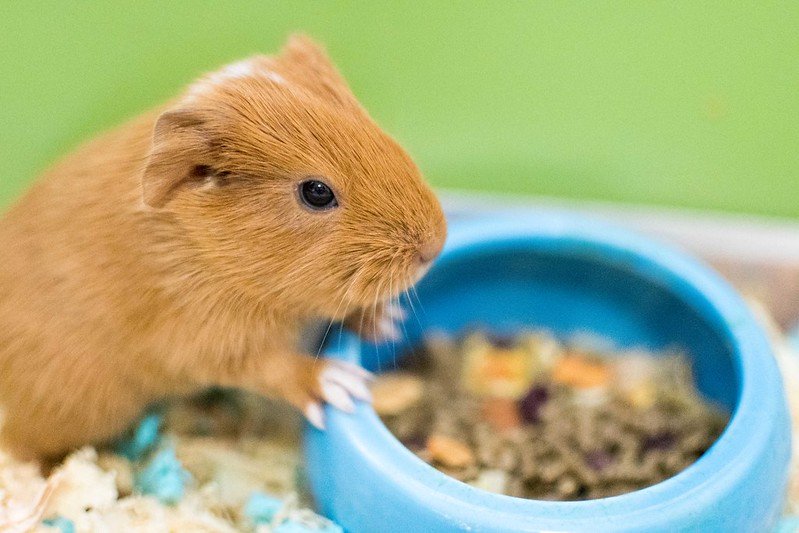Feeding your hamster fresh foods is an excellent way to provide them with a varied and healthy diet. Hamsters are omnivores, which means they eat both plants and animals. In their natural habitat, they feed on seeds, nuts, fruits, and insects. In this article, we will explore the benefits of feeding fresh foods to your hamster and what types of foods are safe to feed.

Benefits of Fresh Foods for Hamsters
Feeding your hamster fresh foods can provide numerous benefits to their health and well-being. These benefits include:
- Improved Nutrition: Fresh foods are generally more nutritious than processed foods. They contain higher levels of vitamins, minerals, and fiber, which are essential for your hamster’s health.
- Varied Diet: Feeding your hamster fresh foods can provide them with a varied diet. Different types of fruits and vegetables contain different nutrients, so offering a variety of foods can help ensure that your hamster is receiving all the nutrients they need.
- Dental Health: Chewing on fresh foods can help keep your hamster’s teeth healthy. Fresh fruits and vegetables require more effort to chew than processed foods, which can help prevent dental problems.
- Mental Stimulation: Feeding your hamster fresh foods can provide mental stimulation and enrichment. Hamsters enjoy exploring and foraging for food, so offering a variety of fresh foods can help keep them mentally stimulated.
Safe Fresh Foods for Hamsters
Not all fresh foods are safe for hamsters to eat. Some foods can be toxic to them or cause digestive problems. Here are some safe fruits and vegetables that you can feed your hamster:
- Apples: Apples are a good source of fiber and vitamin C. Remove the seeds and core before feeding.
- Carrots: Carrots are high in vitamin A and fiber. Offer them in small amounts as they are high in sugar.
- Broccoli: Broccoli is high in vitamin C and fiber. Offer it in small amounts as it can cause gas.
- Grapes: Grapes are a good source of fiber and vitamin C. Remove the seeds before feeding.
- Berries: Strawberries, raspberries, and blueberries are all safe for hamsters to eat. They are high in vitamin C and fiber.
- Cucumber: Cucumber is high in water and can help keep your hamster hydrated. It is also a good source of vitamin C.
- Kale: Kale is high in vitamin C and fiber. Offer it in small amounts as it can cause gas.
- Spinach: Spinach is high in vitamin A and iron. Offer it in small amounts as it can cause kidney problems if fed in excess.
- Sweet Potato: Sweet potato is high in fiber and vitamin A. Offer it in small amounts as it is high in sugar.
- Peas: Peas are a good source of fiber and protein. Offer them in small amounts as they are high in sugar.

Feeding Tips
When feeding your hamster fresh foods, there are a few things to keep in mind:
- Wash all fruits and vegetables thoroughly before feeding them to your hamster.
- Offer fresh foods in small amounts. Hamsters have small stomachs and can easily become overweight.
- Offer fresh foods as treats, not as a replacement for their regular food.
- Remove any uneaten fresh foods from your hamster’s cage after a few hours to prevent spoilage.
Avoid feeding your hamster foods that are high in sugar, fat, or salt. These can cause digestive problems and other health issues.

In conclusion, feeding your hamster fresh foods can provide numerous health benefits. Fresh fruits and vegetables are a good source of nutrients, can help keep your hamster mentally stimulated, and can promote dental health. When feeding fresh foods, it’s important to choose safe options and to offer them in small amounts. With proper care and attention, feeding fresh foods can help keep your hamster healthy and happy.


